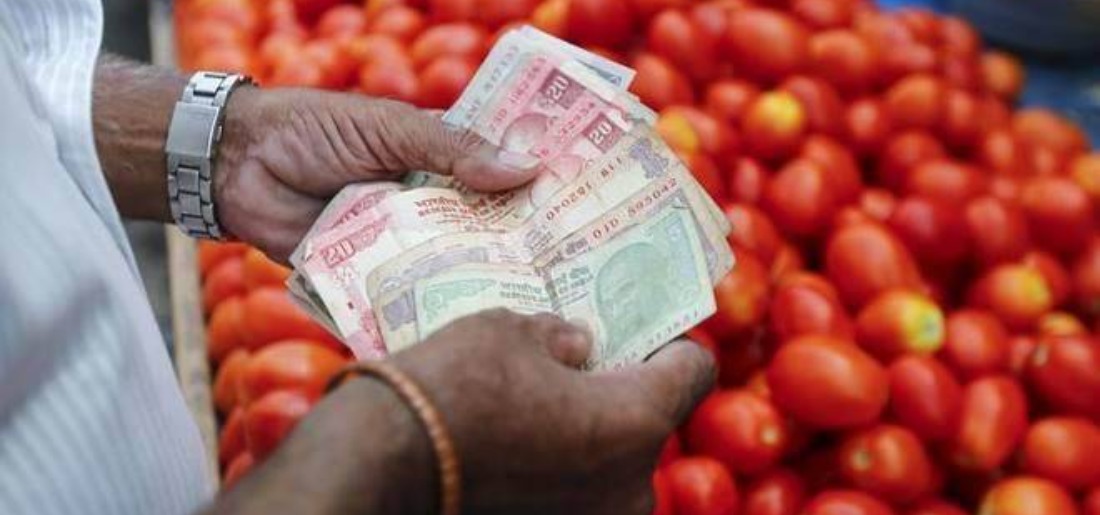Today, we can understand why tomato prices are skyrocketing.
The Synopsis
We discussed the Turkish currency and the country's spiralling inflation, which is causing an economic disaster. We ascribed the majority of it to Turkish President Recep Tayyip Erdogan's paradoxical economic policies. More particularly, his belief that you might reduce inflation by making low-cost loans available to firms and individuals.
This sparked a flurry of inquiries from our readers, who wondered whether this low-cost lending company was causing inflation in India. They're concerned about tomatoes, in part.
If you haven't heard, the price of tomatoes has risen dramatically. Yours sincerely just purchased tomatoes for Rs 60/kg from a supermarket in Bangalore. You could think that's not that horrible. However, only a few days ago, some individuals were paying over Rs 100 per kilogramme for tomatoes. It's insane, and you have to wonder at this point whether tomato inflation is a result of the present low-interest climate.
No!
Interest rates have nothing to do with this. Rather, it's a matter of supply limits. The thing with tomatoes is this: They are cultivated all year round in various sections of the nation. However, the majority of this product is available between November and February, and then again between March and June.
Unfortunately, these tomatoes haven't been reaching the market as often as they used to, and the resulting supply shortage is driving up costs.
But you know what's strange about this story?
Tomato prices have dropped to an all-time low of Rs 4 per kilogramme in August. In every region of the nation, there was an abundance of supplies. The abundant crop during the Kharif season had persuaded everyone that prices would remain low all year. But that didn't work out. Because torrential rains devastated standing crops in Karnataka, Andhra Pradesh, and Maharashtra shortly after. During the months of October and December, these are critical suppliers that have struggled to meet demand.
So, perhaps, you can understand why tomato prices are rising. There is a demand-supply imbalance. We are unlikely to see prices moderate until a consistent supply starts to flow in again.
When is it going to happen?
According to some analysts, it won't happen until late December. Others predict that the next shipment of tomatoes will arrive in key marketplaces within the next week or two. What are our thoughts on the matter? In many regions of the nation, prices have already begun to moderate. So, maybe in a couple of weeks, we'll see a price drop.
However, there is a greater issue with tomatoes. It's a very perishable product with a 10-day shelf life. Furthermore, since our storage and transportation infrastructure is inadequate, the shelf life is reduced by another day or two. This research discusses the subject of waste in the tomato supply chain.
Harvesting: Tomatoes are harvested by hand in India, which lowers food waste. Laborers may go through a field 10 to 12 times, plucking just the tomatoes that are fully ripe. Despite the losses avoided by manual harvesting, losses of roughly 10% are caused by handling damages, quality sorting, pests, and infections at this stage.
Post-harvest: Transport and handling losses are the most common causes of tomato losses. At this step, poor road quality, exposure to unfavourable climatic conditions such as heat and sunshine, poor package quality, lengthy distances, and a large number of touchpoints all contribute to losses of 15–20 percent.
In the end, around 20% of all tomatoes go bad after harvest. Consider this: around one-fifth of all tomato crop is never eaten. On the other hand, if we were able to reduce part of this waste, prices would never grow to this level. It is, in reality, a major issue for both consumers and politicians.
Every day, nearly 40,000 tonnes of tomatoes are consumed in India. It makes no difference whether you are wealthy or impoverished. You're going to be eating tomatoes. And if costs grow, it will put a strain on everyone's wallet. So, ideally, legislators will be able to find a solution to the waste issue, because if they don't, consumers will go to the streets one of these days. That isn't good news for anybody.
(Source: Finshots)


Comments
Post a Comment